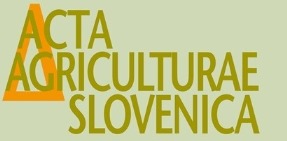Obseg in stroški izgube v pridelovalni verigi manioke po spravilu pridelka v državi Kwara, Nigeria
Povzetek
Ključne besede
Celotno besedilo:
PDF (English)Literatura
Abduraheem, K. A and Toluwase, S. O. (2013). Costs and returns analysis of cassava production in Ekiti State, Nigeria. Journal of Agricultural Science, 3(10), 454-457. Available online at http://www.scholarly journals.com/SJAS.
Achem, B.A. and Akangbe, J.A. (2011). Assessment of Constraints to Cassava Value Added Enterprises in Kwara State, Nigeria. Journal of Agricultural Extension, 15(1), 124-134.
Atanda, S. A., Pessu, P. O., Agoda, S., Isong, I. U. and Ikotun, I. (2011). The concepts and problems of post–harvest food losses in perishable crops. African Journal of Food Science, 5(11), 603-613. Available online at http://www.academicjournals.org/AJFS.
Bokanga, M. (1999). Cassava: Post-harvest Operations. International Institute of Tropical Agriculture (IITA), Ibadan. Food and Agriculture Organisation of the United Nations.
de Figueroa, L., Rubenstien, L., & Gonzalez, C. (2001). Utilization of Native Cassava Starch by Yeasts. Food Microbiology Protocols Journal. Methods in Biotechnology, 14, 307-317. https://doi.org/10.1385/1-59259-029-2:307
Department of Agriculture, Forestry and Fisheries, South Africa (2010). Annual Report of the department of Agriculture, Forestry and Fisheries, The Republic of South Africa.
Ezedinma, C., Ojiako, I., Okechukwu, J., Lemehi,A., Umar, L., Sanni,M., Akoroda, F., Ogbe, E., Okoro, G., and Dixon, A. (2007): “The cassava food commodity market and trade network in Nigeria”. IITA, Ibadan. Nigeria.
FAOSTAT, 2013. http://faostat.fao.org/DesktopModules/Faostat/Images/T20/ChartPic_d4zg47ghd0udm5xn 8as3.png?eb37291b-a547-4acc-b987-31bc12fbac56.
Gulick, P., Hershey, C., and Esquinas A.J. (1983). Genetic Resources of Cassava and Wild Relatives. IBPGR/82/111, Rome, pp 8-45.
Jaspreet, A., Anita, R., Joan, F., and Corinne, A. (2013). Estimating Post-Harvest Food Losses: Developing a Consistent Global Estimation Framework. Selected Poster prepared for presentation at the Agricultural & Applied Economics Association’s 2013 AAEA & CAES Joint Annual Meeting, Washington, DC, August 4-6, 2013.
Jones, W.O. (1959). Manioc in Africa. Stanford University Press, USA. pp 315.
Lipinski, B., Hanson, C., Lomax, J., Kitinoja, L., Waite, R., and Searchinger, T. (2013). “Reducing Food Loss and Waste.” Working Paper, Installment 2 of Creating a Sustainable Food Future. Washington, DC: World Resources Institute. Available online at http://www.worldresourcesreport.org.
Muhammad-Lawal, A., Omotesho, O.A., and Oyedemi, F.A. (2013). An Assessment of the Economics of Cassava Processing in Kwara State, Nigeria. Invited paper presented at the 4th International Conference of the African Association of Agricultural Economists, September 22-25, 2013, Hammamet, Tunisia.
Nweke, F.I. (2003). New challenges in the cassava transformation in Nigeria and Ghana. Environment and Production Technology Division (EPTD). Discussion Paper No. 118, International Food Policy Research Institute, Washington DC, USA.
Nweke, F.I. (2004). “Cassava, A cash crop in Africa. A Collaborative Study of Cassava in Africa”. Working paper. No. 14.
Nweke, F.I., and Enete, A.A. (1999). Gender surprises in food production, processing and marketing emphasis on cassava in Africa: Collaborative Study of Cassava in Africa (COSCA). Working paper No. 19. COSCA, IITA, Ibadan, Nigeria.
Oguntade, A.E. (2013). Reducing Food Losses to Improve Food Security: An Analysis of Cassava and Maize Value Chains in Nigeria. Report delivered to the GIZ Gmbh, Bonn, Germany.
Olsen, K.M., and Schaal, B.A. (2001). Microsatellites variation in cassava (Manihot esculenta, Euphorbiaceae) and its wild relations: further evidence for a further evidence for a southern Amazonian origin of domestication. American Journal of Botany, 88, 131-142. https://doi.org/10.2307/2657133
DOI: http://dx.doi.org/10.14720/aas.2019.114.2.1
Povratne povezave
- Trenutno ni nobenih povratnih povezav.
Avtorske pravice (c) 2019
##submission.license.cc.by-nc-nd4.footer##
Acta agriculturae Slovenica je odprtodostopna revija, ki objavlja pod pogoji licence Creative Commons Priznanje avtorstva (CC BY).
eISSN 1854-1941
